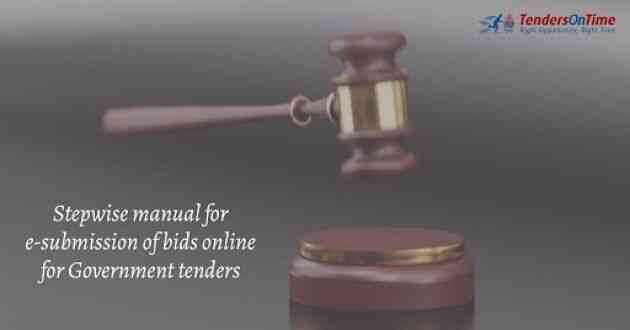How Can We Win A Smart City Tender: 5 Key Factors

Securing a smart city tender isn’t really different from landing a pitch or acing a job interview
Successfully winning a smart city isn’t a case of pure luck. It all comes down to skillful planning, critical examination of estimates, honest evaluation, an honest relationship, and a solution that ultimately solves the city’s issues. Government tenders are profitable contracts but aren’t easy to be obtained. The competition can be aggressive and unless you’re armed with the proper knowledge, the right product, and a good strategy, your proposal will fall flat before the decision-makers have even had the time to look at it.
Securing a smart city tender isn’t really different from landing a pitch or acing a job interview, but your approach needs to be tailored to the situation. The stakes are much higher with government contracts, and the performance of your product may have far-reaching implications. To increase your chance of winning a smart city tender, we’ve put together some sure-fire strategies that will lead to success:
Validate Your Expertise:
Firstly, we need to understand the nature of the challenge and use our expertise to find a suitable solution. Secondly, we need to understand the nature of government procurement and the constraints and limitations that go along with it. The best way to validate our expertise is by proving that our product works and delivers clear benefits, with proven use cases and an elemental understanding of the assignment. Focus on the challenge you’re trying to solve and explain how your product is the perfect solution and why you are the right person to deliver that solution. It’s vital to understand that cities operate with different restraints as compared to private enterprises. With that in mind, it’s important to keep the costs realistic and within budget. If a solution is too expensive to control, it’s likely to be passed over.
Establish Trust:
Building trust is a gradual and time-consuming process, but it’s an essential basis for a strong working relationship. It will always be a struggle to win any big contracts without being able to build trust. The best way of establishing trust is by showcasing a portfolio of successful solutions and previous partnerships. This should be quite simple for established companies, but what about the new companies with fresh innovations?
A reliable and tested way to prove that you’re trustworthy, reliable, and capable is by getting involved in the community. This could be indirect by providing services to the private sector, engaging with charitable enterprises within the city, and supporting other local agencies. Another way is to prove yourself by taking part in challenge-based programs hosted by the city. It puts you on the map and shows your ability to work briefly and deliver a solution, whether it’s controlled or not.
Asses who you’re going to pitch:
City governments are operated by enthusiastic citizens who are actively looking out for solutions to the city’s problems. The term “Government” may produce images of a grim, faceless entity, but that’s not the case. By following a smart city department’s social media, you can get an idea of how the team works and the city’s overarching strategy. If you can customize your proposal and product to match the tone and voice of the city’s smart city division, then you’re more likely to be seen as a good fit.
Impart an inspirational result:
The best way to win a smart city tender is to provide a distinctive, unconventional, and cost-effective product at the end of the day. Nevertheless, if you can deliver a product that solves several problems in one product, then you’re onto a winner. A solution that responds to a city’s needs is great, but if it can inspire solutions to further problems, then your product will be a more attractive option by far.
If there is a way to execute your solution using prevailing city infrastructure or by providing the means to generate a whole host of new solutions, you should highlight that in the proposal. It could be more useful to a city’s government in the long run by highlighting how it could integrate with other programs, inspire new solutions, or highlight areas that haven’t been looked at if your solution can’t solve all of a city’s problems at once.
Few Words of Advice:
Always keep in mind that you can’t win every tender. However, if you’re consistently facing rejection, it’s a wise idea to ask for feedback about how your proposal performed in comparison to the successful bidder.
Was there something about their proposal that scored more points?
Did you overlook an essential element?
Asking for feedback is a great way to help your chances in future bids. Failing that, it’s also worth asking a third-party to critique your proposal and offer advice on how to strengthen your weaknesses. Armed with this information, your next tender submission will lead to success!
With all the above mentioned key factors of winning a smart city tender makes us realise the importance of it. However, smart cities do have certain challenges that we must keep in mind. The gap between ideation and execution is bridged by TendersOnTime. Led by first-generation enthusiasts, the organisation houses the largest database of tenders, e Procurement, RFP, global tenders, open tenders and government contracts.



